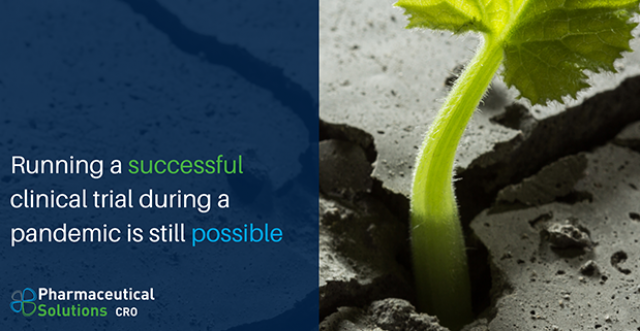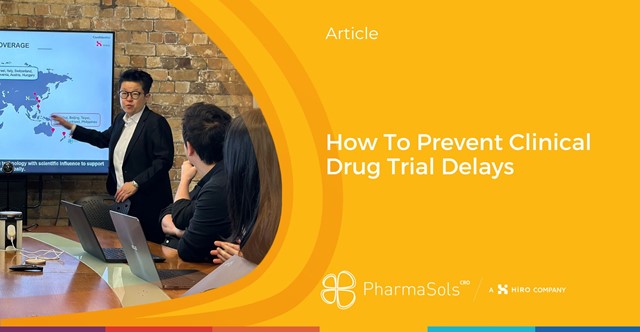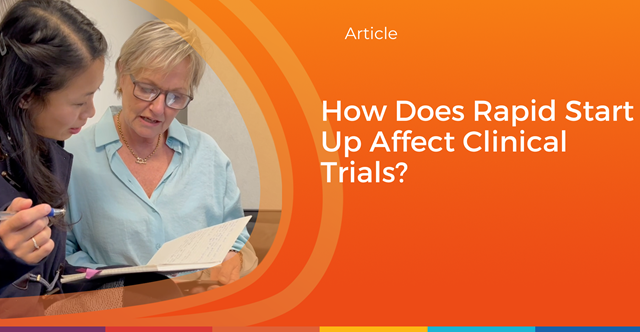16 Feb
How to Run A Trial During a Pandemic

When the pandemic hit, it was like someone stuck a stick through the wheels of a bike, and we all went toppling over. Everyone had the intention to keep moving, keep peddling forward, but the uncertainty of COVID-19 felt like a heavy burden.
Running a clinical trial during a pandemic felt, and still might feel, impossible, and in some places in the world, it is too difficult due to COVID 19 restrictions and complexities.
However, COVID-19 has resulted in an unprecedented uptake in digital technology in a very short space of time and the clinical arena is no exception. GPs have moved to remote consultations, a practice that has been discussed for years but only just recently implemented. In addition, remote triage, education, and peer support are now common processes and are likely here to stay.
This has also been true for running clinical trials.
What we learned
The lockdown crept over New Zealand like a shadow. We could see what was happening around the world and knew what was coming.
With a lockdown imminent, we prepared to implement remote ways of working for our staff when being on-site at a hospital or trial site was no longer feasible. We also worked closely with trial sites to help patients continue their participation in clinical trials and access their trial medications, even from their own homes if required.
Setting up an independent and secure portal for data and allowing CRAs to review trial data remotely was one of the first measures we pre-emptively took. We needed to ensure there was a safe place to store essential patient data and any other sensitive information. Patient information had to be protected and the strict data privacy laws in New Zealand adhered to.
Our CRAs were able to perform monitoring tasks remotely only two days after our lockdown began, and we assigned a dedicated and thoroughly trained staff member to oversee this important aspect and make sure all strict guidelines were adhered to.
This “new” way of working completely remotely, was of course very new for the sites and PharmaSols staff, but implementation went smoothly due to the successful collaboration between the parties.
Clear communication and strong collaboration were needed more than ever. We started by meeting the sites' staff over Zoom and getting everyone introduced and ready to work together. We needed to understand each sites’ response to alert level changes and how this would impact on new trial start-ups, recruitment, patient retention and patient standard of care for each clinical trial.
Weekly check-ins with sites became part of our regular schedules. We wanted to know how everyone was getting on, how they were adapting to the changes, and to assure them of the status of their study. Our transparent approach proved to be greatly appreciated by our global sponsors.
To keep on top of timelines and avoid delays, we developed full remote monitoring SOPs for CRAs that outline everything they needed to know about each sites’ capabilities.
In case regions had different lockdown measures, which could prevent CRA’s traveling, we made sure we had trained, backup CRAs to prevent this kind of interruption.
Our recommendations
One of the key measures we took that led to us continuing to operate remotely was preparation.
It is then essential that (if you have not already) you ensure you have a plan in place at each stage, making the necessary precautions in preparation for a potential lockdown. Initial planning at the protocol development stage is vital. Consider targeted protocols, smaller patient numbers to deliver necessary end points, and look to minimise patient visits.
Spread your trial across geographic regions with low transmission rates to minimise the possible interruption of COVID-19. At the design stage, consider virtual and telehealth capabilities to ensure continuity.
In some countries, the ongoing impact of COVID-19 has impacted patient retention rates. Patients are too scared to attend regular visits. Australia and New Zealand, with their relatively low COVID-19 rates, have been able to provide assured continuity of trials over this difficult time, with many new studies are starting in this region.
Using a reliable and secure portal that protects patient data and redacts personal information is an important measure to take, but usability is also critical. Make sure all staff are appropriately trained on how to operate remote monitoring, virtual trials and telehealth capabilities to avoid the risk of confusion and delay.
Having a dedicated person looking after the remote monitoring of your sites simplifies things.
Check-in with everyone on your team regularly, preferably by video chat. While emails and messenger apps are rapid solutions for sending messages, they often are not as effective and personal as speaking directly to someone.
Finally, you must have multiple backup plans to cover different eventualities.
Moving forward
Full remote monitoring is now part of our standard practice. While New Zealand and Australia continue to maintain low rates of transmission, moving alert levels is still going to be the new normal for some time while we grapple with COVID-19.
The complexities of clinical trials have been made worse by COIVD-19. By working with a local team of experts who have ensured continuity throughout all levels of lockdown means they can bring the same consistency to your trial.
PharmaSols is an award-winning CRO and for over twenty years has used proven strategies in New Zealand and Australia. Throughout COVID-19, we have proudly operated throughout all alert levels of lockdown.
Clinical trials have been classed as essential services in our regions, securing the progressions of each trial. We continue to use our proven remote monitoring SOPs, while also considering the safety of the sites, patients, and staff.
In general, New Zealand has responded in ways that ensure most industries can continue to operate. The New Zealand Ethics Committee especially was rapid in their response during the lockdown and was quick to get studies approved.
Running a trial during a pandemic does not have to be as daunting as it sounds. By preparing, collaborating with sites, and selecting a location that will limit the risk of COVID interrupting your timeline, you will find you save on cost and stress.
Please get in contact with one of our experts today to discuss your trial.
Other News
March 2024 (1)
February 2024 (1)
December 2023 (1)
November 2023 (1)
October 2023 (1)
September 2023 (2)
August 2023 (1)
July 2023 (1)
June 2023 (2)
May 2023 (3)
April 2023 (1)
March 2023 (2)
The Go-to region for clinical trials (1)
HiRO – our global advantage, tailored solutions and key partnerships (1) (1)
HiRO – an emerging full-service global CRO (1)
HiRO – Top CRO in APAC 2022 (1) (1)
November 2022 (1)
October 2022 (1)
September 2022 (1)
August 2022 (1)
July 2022 (1)
June 2022 (1)
May 2022 (1)
April 2022 (1)
March 2022 (1)
January 2022 (1)
December 2021 (1)
November 2021 (1)
October 2021 (2)
September 2021 (2)
August 2021 (3)
July 2021 (3)
June 2021 (2)
May 2021 (1)
April 2021 (2)
March 2021 (1)
February 2021 (1)
December 2020 (5)
November 2020 (1)
October 2020 (5)
September 2020 (1)
August 2020 (2)
May 2020 (5)
January 2024 (0)



